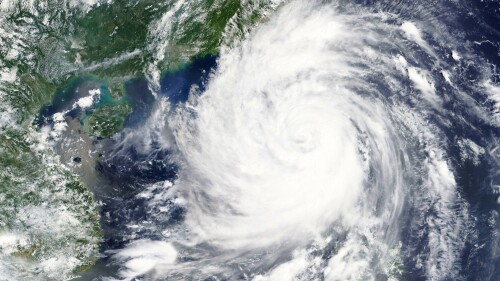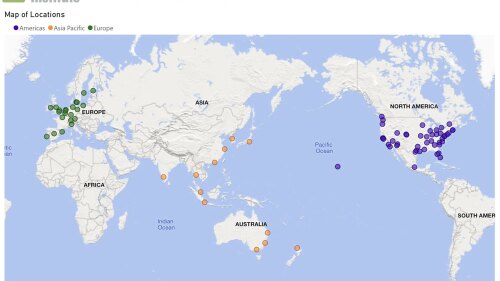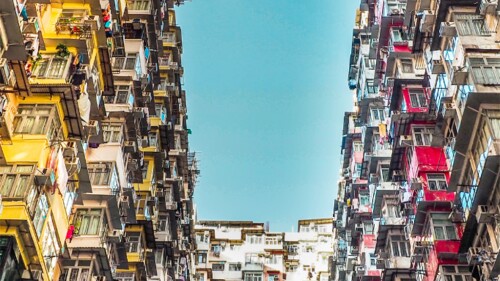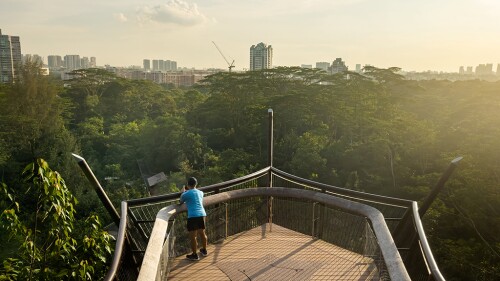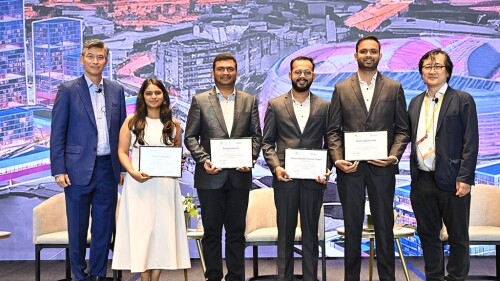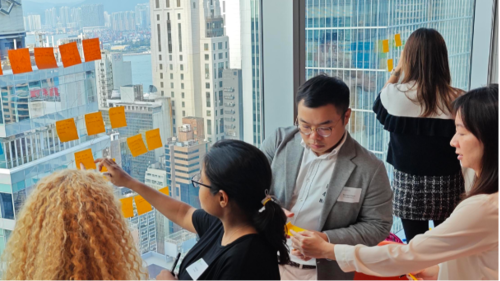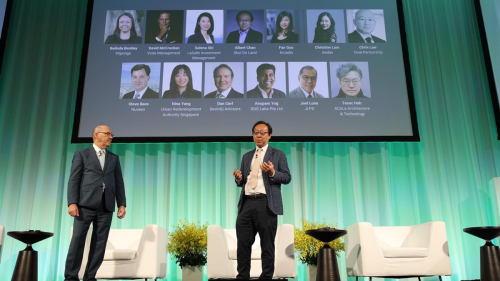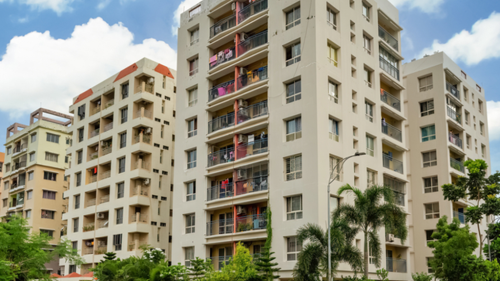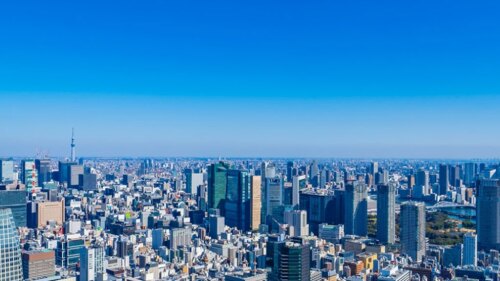Asia Pacific
Insights, trends, and innovation shaping real estate and urban development across the Asia Pacific region’s dynamic markets and cities.
Otemachi One, the largest mixed-use development in Tokyo’s Otemachi District, combines offices, shops, event venues, a luxury hotel, and expansive public green space at the threshold of Tokyo’s Imperial Palace. The development occupies a prime site that was previously home to three office buildings, including Mitsui & Co.’s former headquarters.
In Part 2 of a multipart interview, architect Ben Wood explains how risk-taking around outdoor public space, adaptive reuse, and developer support helped make Shanghai’s Xintiandi a financially and culturally successful urban redevelopment.
In Part 1 of a three-part interview, the architect behind Shanghai’s Xintiandi reflects on his unconventional path and how preserving historic shikumen reshaped urban redevelopment in China.
In Part 3 of a three-part interview, the veteran architect reflects on construction, creativity, and why experiencing great cities matters more than relying on technology.
Shenzhen’s Nantou Ancient City project represents a groundbreaking approach to revitalizing China’s historic urban villages in a way that preserves their cultural heritage and community fabric. After China’s government designated Shenzhen as a Special Economic Zone in 1980, the city’s more than 400 urban villages grew rapidly to provide informal housing for an influx of migrant workers. The result: high-density residential areas that maximized rental income but often compromised on fire safety and hygiene standards.
How Hong Kong leverages transit and housing to create a master class in healthy, equitable urban density.
Holiday travelers may notice that airport-connected hotels are incorporating more regional touches, from façade to dining. Here are five examples that offer the ultimate luxury, a short walk from guest room to terminal.
The 2026 Emerging Trends in Real Estate® Asia Pacific report, published jointly by ULI and PwC found a mood of cautious optimism among real estate professionals; however, respondents described considerable disparities in markets and sectors across the region. Tokyo was ranked as the top city for investment in the Emerging Trends survey, top of the table for the third consecutive year, followed by Singapore, Sydney, Osaka, and Seoul.
Across the Brisbane River from Brisbane, Australia’s central business district, the 33-story Upper House residential tower stands out in the city’s skyline with its “dancing balconies” and curving timber ribbons inspired by the prominent roots of Queensland’s native Moreton Bay fig tree.
In September 2023, Hong Kong was hit by its heaviest rainfall on record—nearly 6.3 inches (160 mm) in a single hour. Link Asset Management’s Temple Mall North, like many other buildings, suffered severe flood damage. In response, the company invested in detachable flood barriers and Internet-of-Things (IoT) sensors to mitigate future risk. For Link’s bottom line, this resilience investment translated into an 11.7 percent reduction in insurance premiums.
Despite geopolitical headwinds, green building regulations continue to gain momentum among local authorities. Many cities have moved beyond reporting requirements to demand practical, asset-level action. Numerous jurisdictions have introduced requirements on net-zero carbon and energy efficiency in buildings, fossil fuel-free heating, embodied carbon, electric vehicle (EV) charging facilities, and climate adaptation measures.
A seminar organized by the ULI Singapore NEXT Committee presented attendees with the little-known concept of real estate “tokenization,” or fractional investing/trading, as a potential bridge between private investors and direct ownership. Although not new, tokenization in real estate is a niche market, particularly in Asia Pacific, with Singapore hosting a small number of the specialized digital platforms.
ULI Asia Pacific has released its 2025 Asia Pacific Home Attainability Index, revealing persistent challenges to affordable or accessible housing across the region. The fourth edition of the report assesses 51 market segments across 41 major cities.
The closing panel at the 2025 ULI Asia Pacific Summit brought together real estate players from a wide range of geographies and capital markets roles. Audience polling at the start of the discussion revealed that Summit attendees believe the world will become more multipolar after a generation of American exceptionalism, with some audience members feeling that the U.S. will fall behind Asia or Europe.
Setting the tone for this year’s ULI Asia Pacific Summit, moderator Lola Woetzel, senior partner emerita at McKinsey & Company, presented a panel of industry leaders with the perennial question: “How does it feel to live here?” The discussion brought into sharp focus the complex realities shaping housing across the region.
Once the site of an abandoned quarry, Singapore’s Rifle Range Nature Park now serves as a buffer zone protecting one of the island nation’s last primary rainforests, Bukit Timah Nature Reserve, from encroaching development and human activity. Located to the reserve’s south, Rifle Range is Singapore’s first net-positive energy nature park, harvesting more energy than its annual operational requirements.
At the 2025 ULI Asia Pacific Summit, a distinguished panel of industry leaders convened to dissect what the rise of artificial intelligence means for the sector and how organizations can harness its potential. Their debate spanned the frenetic growth of data centers, the journey of AI adoption, and seismic shifts afoot for the built environment and the workforce.
At the 2025 ULI Asia Pacific Summit—May 26–29, in Hong Kong—a panel of Asian economic and geopolitical experts addressed one of today’s most immediate global concerns: the implications of U.S.–China economic decoupling and the broader geopolitical shifts reshaping global trade and investment.
Fourteen developments from across Asia have been named winners of the 2025 ULI Asia Pacific Awards for Excellence, one of the real estate industry’s most prestigious honors. Announced at the 2025 ULI Asia Pacific Summit held in May in Hong Kong, this year’s award winners include projects in Australia, Bangladesh, China, India, Japan, the Philippines, and Singapore.
Winning proposal reimagines Hong Kong’s Kai Tak Waterfront as a model for sharing cities, where density drives innovation and inclusive urban living.
India, one of the fastest-growing economies in the world, is urbanizing rapidly. By 2030, more than 40 percent of its populace is projected to live in urban areas, contributing there to more than 70 percent of the nation’s greenhouse gas emissions. The demand for commercial and residential spaces is surging, which attracts global investors eager to capitalize on this dynamic market. This rapid growth comes with a pressing question, however: can India urbanize without following the carbon-heavy trajectory of other developed countries?
One of Singapore’s most vibrant districts demonstrates how public/private partnerships and the community can shape the built environment.
Governments, businesses, and communities need to collaborate to reduce carbon emissions to ensure that decarbonisation is not just a buzzword.
Held in fast-paced and bustling Ho Chi Minh City, Vietnam, in mid-November, ULI Asia Pacific’s REImagine 2024 brought together more than 100 professionals in a uniquely engaging way.
Although market dynamics are changing in countries across Asia, new opportunities are opening up in real estate investment
Conducted in October, the Emerging Trends in Real Estate® survey ranked Tokyo (1), Osaka (2), Sydney (3), and Singapore (4) as the four cities with the best investment prospects for the region. However, MSCI data and anecdotal reports reveal that market disparities are profoundly evident across both geographies and sectors in Asia Pacific.
A new initiative aimed at promoting low-carbon steel in China’s real estate sector has been launched, co-convened by ULI Greenprint, the World Steel Association, and the China Iron and Steel Association. This collaboration unites major real estate developers and steel manufacturers to drive the transition to low-carbon steel production, with the goal of significantly reducing emissions in Mainland China and Hong Kong. China’s steel industry plays a pivotal role in global efforts to combat climate change.
During his keynote address at the 2024 ULI Singapore Annual Conference, more than 300 participants gathered at the Parkroyal Collection Marina Bay to hear Olivier Lim, chairman of StarHub and the Singapore Tourism Board—based upon his 35 years of experience in real estate, banking, and leadership—how land and real estate shaped Singapore’s path as a nation.
Against the iconic backdrop of Hong Kong’s skyline, a room filled with cross-disciplinary real estate experts engaged in a lively display of unprecedented collaboration. Brightly colored sticky notes plastered across the floor-to-ceiling windows mapped out an intricate web of relationships between developers, tech providers, facility managers, investors, utilities, and more. The pioneering systems change workshop was piloted by ULI APAC Greenprint and aimed to address a critical challenge: how to accelerate climate tech implementations that will lead to long-term sustainability.
Renowned U.S. architect opens up about his extraordinary career in China and the U.S.
Singapore
Twelve developments from across Asia have been selected as winners of the 2024 ULI Asia Pacific Awards for Excellence, one of the real estate industry’s most prestigious honors. Announced at the 2024 ULI Asia Pacific Summit held in May in Tokyo, this year’s award winners include projects in Australia, China, Hong Kong, Japan, Singapore, and the Philippines. These winners will automatically qualify as nominees for the 2024 ULI Global Awards for Excellence, where they will compete against projects from North America and Europe.
With investors across the Asia Pacific continuing to avoid mainstream asset classes as they seek out higher returns and more reliable income streams, attention has turned increasingly to “living assets”—a broadly defined concept that includes the multifamily, senior living, and student housing sectors.
The 2024 Asia Pacific Home Attainability Index by ULI offers a comprehensive overview of housing attainability across the Asia Pacific region. In this third edition, the report includes data from three additional cities—Bangkok, Kuala Lumpur, and Perth—expanding its coverage to 48 cities in 11 countries, namely, Australia, China (including Hong Kong SAR), India, Indonesia, Japan, Malaysia, Singapore, South Korea, the Philippines, Thailand, and Vietnam.
Hong Kong
The creation of public space from unused, underused, or unequally shared linear spaces in urban areas has been happening for a long time. Major reference points in the architectural and planning worlds are Boston’s Emerald Necklace, designed by Frederick Law Olmsted (1878–1896); Freeway Park in Seattle (1972-1976); the Baltimore Inner Harbor (1963–1983); the Promenade Plantée in Paris (1987-1994); and the High Line in New York (2005–2019).
The final day of the 2024 ULI Asia Pacific summit in Tokyo featured a capital markets panel with leaders from both European and North American funds, who shared their insights into the region’s real estate markets—and how those markets stack up against their global counterparts.
Despite the monetary headwinds and continued economic uncertainty around the world, there is a strong belief that the global real estate industry is at a “pivot point,” with improving prospects ahead for renewed investment activity, according to the latest Emerging Trends in Real Estate® Global Outlook 2024 from PwC and the Urban Land Institute.










